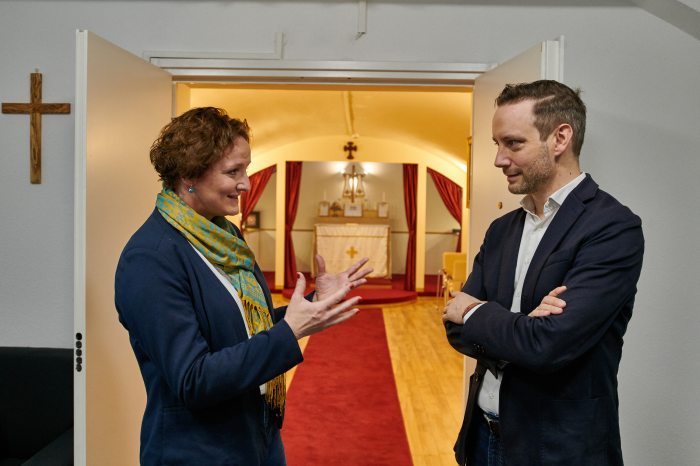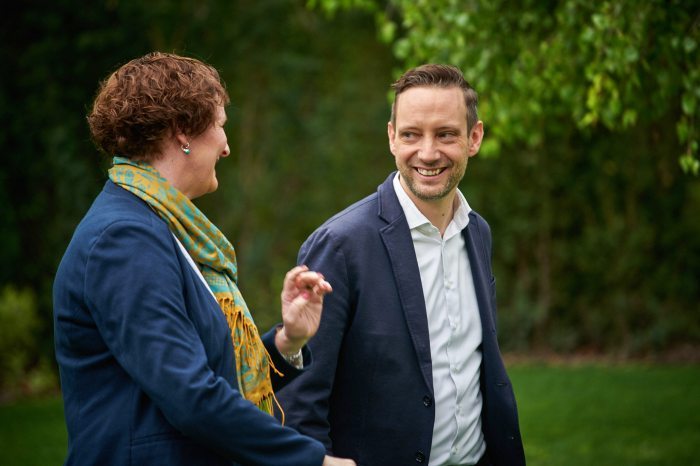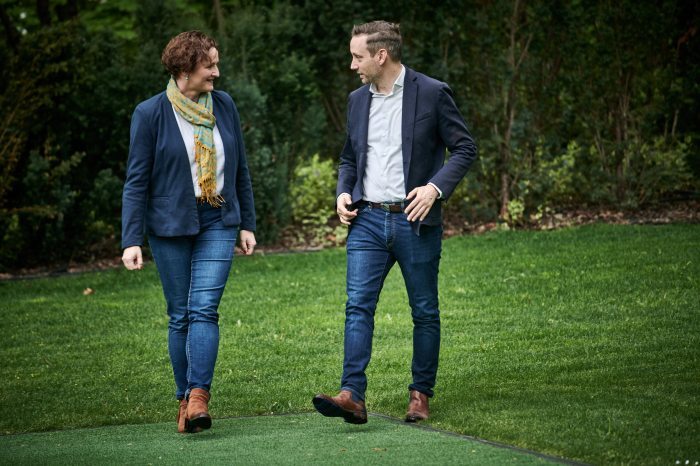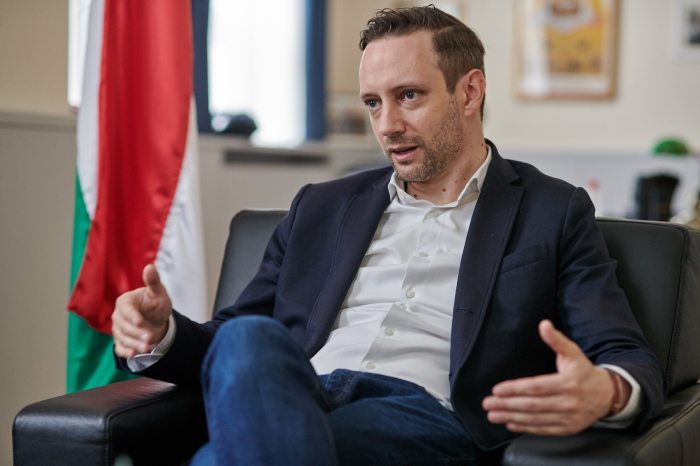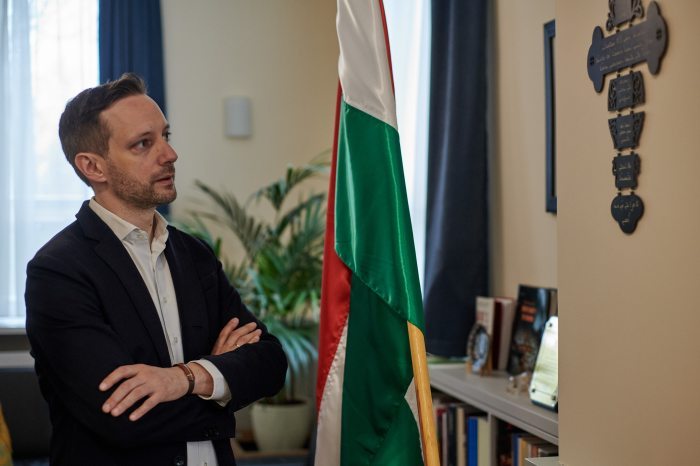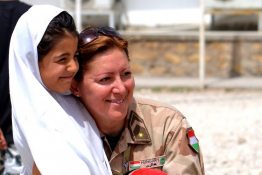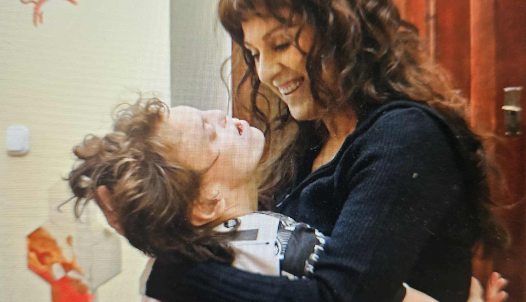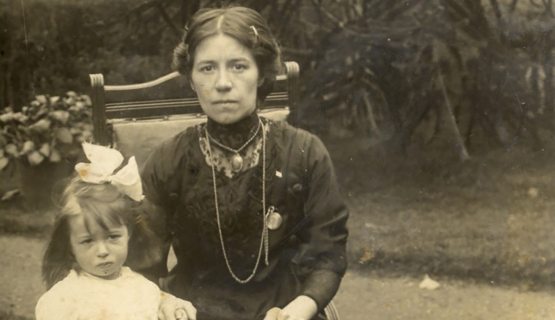"Not only the walls need to be rebuilt” – an interview with State Secretary Tristan Azbej
Part of the self-respect of a nation, of a country, is the ability to show solidarity, to reach out to those with whom we share a community and who are in need. It is a brave, empowering and important gesture, not only for the individual but also for the community, a sign of adult identity. For a long time, the countries of the former socialist bloc thought of themselves as needing support and aid - and for good reason. Thirty years after regaining our autonomy and the change of regime, the time has come for us to turn to others. The Hungary Helps Program, a government aid program that has been running for just four years, provides help to persecuted Christian communities around the world. We spoke to its head, State Secretary Tristan Azbej, in the program's Budapest office, its garden and the chapel in the building.
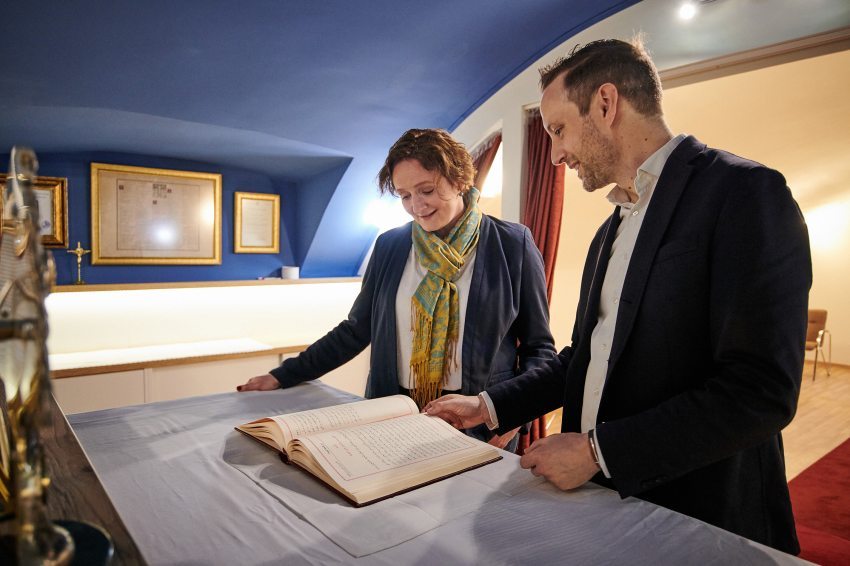
The chapel in the arched basement of the office building symbolises well the mentality and spirituality of the programme. It has been designed to allow liturgy to be celebrated according to the rites of any Eastern Christian church: a tripartite structure, as well as a walk-around altar and a curtained area, all prevail.
The chapel was dedicated to St Stephen the Martyr, the first known persecuted Christian and the patron saint of our founding king, Saint Stephen. Stephen the Martyr, moreover, is venerated in all Christian churches as one of the so-called saint-in-common - so it is particularly well placed in this sacred space, where representatives of several Eastern Christian churches (mostly the leader) have visited, adding colourful vestments, icons and other devotional objects to the otherwise puritanical walls.
Most of us are probably unaware of how many different Christian denominations Christians in the Middle East and Africa belong to. Tristan Azbej lists their former guests, telling us briefly about one or two of them, and pointing out the difficulties they have faced - terrorism, persecution, church destruction.
It is painful to think that 340 million Christians around the world, families, children and of course priests and monks, are suffering persecution. It is the biggest human rights crisis of our time, and also the most silenced - silenced because it is too significant.
If it were only on the agenda of the world's major human rights organisations, it would supersede the much smaller issues discussed there, but which are of greater importance in the ideological trends of the world. The reality would, as so often, contradict liberal mainstream ideologies. So the work being done by the small Hungarian aid program and a few other similar, dedicated institutions around the world is heroic.
Many of the latter programmes are explicitly modelled on the Hungarian program, such as the Polish program or the US program set up by the previous US administration. Their activities are not only symbolic: for the places they get to, and for the people they help in a specific way, this help is significant and important. But the scale of the problem and the number of people in need is far beyond their means. They are a kind of first swallows hoping to make a summer. This is how the leaders of the churches in the Middle East feel, too, for they are not only grateful for the humanitarian aid, the cooperation in reconstruction or even the scholarships, but above all for the gesture. They are glad that there is a nation in the prosperous part of the world that feels it important to show solidarity with Christians in the region from which the Christianity of the modern world has grown. And with those areas where today the daily lives of Christian communities are defined by various combinations of wars, terrorism and persecution.
"The work starts in an analysis group so that we would have an accurate picture of humanitarian disasters, political emergencies, or wars in Syrian, Iraqi, Lebanese or even Egyptian and Nigerian Christian communities," says Tristan Azbej. The work of the analysts is used as a basis for reaching out to individual communities in need, primarily through churches. From the problems identified, they will seek out, in consultation with the local church, the task that they can be of best help with the means at their disposal. This could be emergency humanitarian aid: health, food, supplies or even money for disaster survivors. Examples of such disasters include the church bombing in Sri Lanka at Easter and last year's bombing in the Christian quarter of the port of Beirut. The focus is on families without breadwinners and orphaned children. There have also been cases where seriously injured victims have received hospital care and physical rehabilitation in Budapest.
Long-term support is also provided within the program, such as providing health or education assistance to refugee communities. In Nigeria, for example, the education of girls in urban areas is important: in schools they are relatively safe from Boko Haram, who see Christian girls as a kind of free prey. The third form of assistance is reconstruction, which is perhaps the largest part of the Hungary Helps Program projects. In villages destroyed by jihadists, houses, schools, roads are rebuilt - and also churches that other aid agencies avoid in the name of misinterpreted political correctness. Yet the church, the place of worship, is essential for the full healing and rebuilding of the community. It is a symbolic moment of both mental and physical reconstruction when a holy mass can again be celebrated in a church that has been desecrated or used as a target for shooting. On the wall of Tristan Azbej's office is a photograph from the church of Tell-Askuf, a village in the Nineveh plateau, where the baptism of 13 young children is being celebrated: the first service to be held in the sanctuary, which was rebuilt with Hungarian funding.
To show their gratitude, the ending "Daughter of Hungary" was added to the name of the settlement.
In this settlement, where the jihadists destroyed the church and the cemetery, signaling that the Christian community as such is doomed to be wiped out, three-quarters of the population has since moved back, while in other parts of Iraq the Christian community has been reduced to one fifth.
"There are also new ways to support beyond the traditional aid", the Secretary of State continues. "Thanks to our scholarship programme, more than 160 young people from these communities are now attending universities in Hungary, with the understanding that when they graduate they will go home and become the driving force and leaders of their home communities. And most recently, volunteers can join the Hungary Helps Program, and so can you, dear reader. It is possible to target (and even follow up) donations of money, and to get involved in the lives of local communities in reconstruction, education and health in specific safe locations."
In March, Pope Francis visited Christian communities in Iraq, helping to break down the walls of silence and indifference in the prosperous part of the world about the plight of persecuted Christians. During the visit, Tristan Azbej also met Pope Francis, but he did not have the opportunity to tell him about the program as he was preceded by a church leader in his company, the Syrian Orthodox Archbishop of Mosul, Nicodemus. The Archbishop praised the Hungary Helps Program for its meaningful and selfless assistance to the suffering Christian communities in Iraq, ahead of all others.
Perhaps this is why the Pope announced on the plane on his way home from Iraq that he would accept the invitation of the Hungarians to attend the closing event of the International Eucharistic Congress in September.
Képmás magazine is launching a new series called Public Treasure, in which Kata Molnár-Bánffy, the publisher of Képmás, talks to dedicated people whose successful work can be of interest to many, and is a Public Treasure, as the title of the series suggests: a common issue, something we want to take care of.
